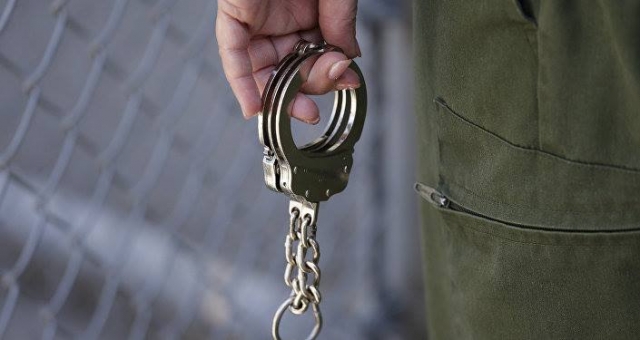Georgia Tightens Punishment for Criminal Group Membership
The Georgian Government has decided to step up efforts in the fight against the criminal world, and will tighten punishment members of criminal groups; especially for being a so-called “thief-in-law.”
The proper legislative amendments, initiated by the Interior Ministry, were approved by the Government and sent to the Parliament for further consideration.
According to the changes, any person who appears to be a member of a criminal group or a "thief- in- law", for the purpose of settling any dispute or making any decisions, or supports the criminal world, will be punished according to criminal law.
Also, any person who organizes the meeting of criminals or so called “thieves-in-laws”, or takes part in such meetings, will be punished.
Furthermore, if under the current criminal code, being a “thief-in-law” is punished by 7-10 years imprisonment, according to the amendments, this punishment will be increased to 10-15 years in prison.
As for membership of an organized criminal group, the punishment will be a term of seven to ten years instead of the previous 5-8 years.
Georgia’s Deputy Interior Minister, Natia Mezvrishvili, says that as soon as members of the criminal world, so-called thieves-in-law cross the state border of Georgia, law enforcement bodies will detain them immediately.
“Moreover, the people who provide any kind of assistance to the members of organized crime groups will be also punished according to the law,” she stressed.
Giorgi Gakharia, Interior Minister of Georgia, says if the members of the organized crime groups cooperate with the investigation, their punishment will be lifted.
“The planned changes are necessary if we all want to build a successful country and eliminate organized crime once and for all,” he stated.
The Minister believes law and order will not be established in the country until there is effective cooperation between civil society and law enforcement agencies.
“We are building this bridge of trust now. For this purpose, we needed to be honest to ourselves and to society," Gakharia told Imedi TV.
Georgia’s Prime Minister, Giorgi Kvirikashvili, welcomed the changes, saying Giorgi Gakharia enjoys tremendous support from the Cabinet.
“I would like to emphasize and assure our population that the mentality of organized crime will never again take root in Georgia. Never ever! In this regard, we will be truly consistent and merciless because it is about the peace and quiet of our fellow compatriots and the building of our country's future,” the PM stressed.
Vory v zakone, or "thieves-in-law," are originally a Soviet phenomenon. They first appeared in the 1930s – people who did not accept the Soviet regime and went into the criminal underground. "Thief" is not a profession, but a title backed by the thieves' "law," or code of conduct.
According to the thieves' own morality: to not rat on others, to repay debts, to not be associated with sports teams, etc. But the title gave them the right to act as arbitrators in the criminal world.
These "thieves" disappeared back in the early 1960s, when the death penalty was introduced for the involvement in gangs, said Mikhail Pashkin, chairman of the coordinating council of the Moscow and Moscow Region police trade union.
These days, a "thief-in-law" is just the leader of a criminal gang, with the exception of a few traditions that have been preserved: the ceremony of "crowning" (the awarding of this title), and the thieves' cashbox – the so-called obshchak (common fund), which is held by the "thieves."
Only people, who have been convicted many times can become the so-called thieves-in-law. Once accepted they must live according to the thieves' code. The penalty for violation of this code is often mutilation or death.
After the collapse of the Soviet Union, the so-called thieves-in-law (the vory) assumed a leading role within the Russian criminal hierarchy.
Today, the thieves are spreading their influence far beyond the borders of the former USSR and they have their organized crime groups in Europe and even in the USA.
By Thea Morrison












